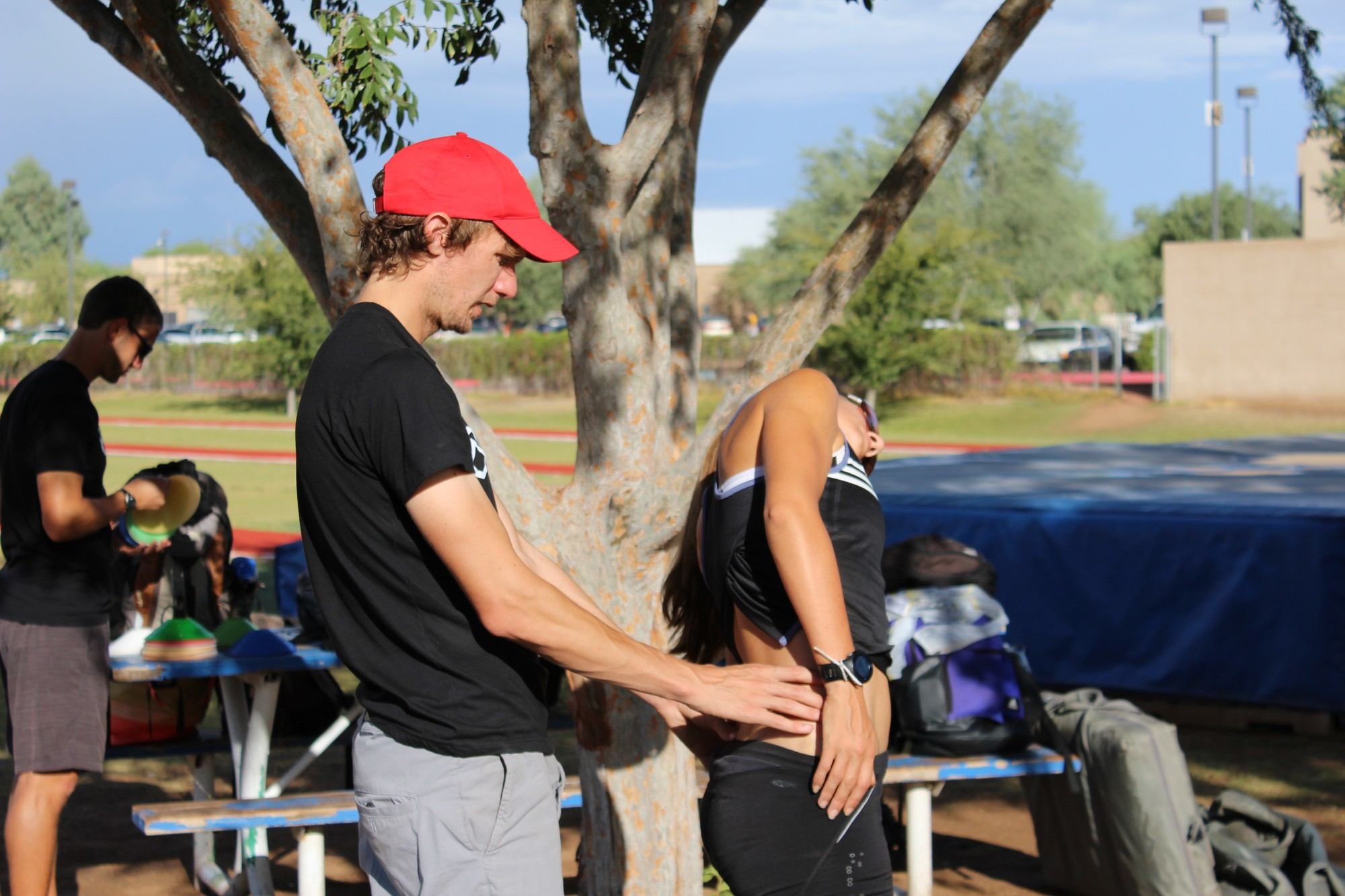I often find myself wondering whether Twitter is a blessing or a curse as we develop and learn on our journey as coaches.
It is a wonderful resource, and a great instrument for building networks – enabling us to forge links with others on an intercontinental basis. It allows us to learn in our own time, from a vast number of sources. We are able to follow and acquire the foremost knowledge of the world’s greatest athletes and coaches on a daily basis. We can also read countless scientific papers linked through Twitter, which would have taken huge efforts to obtain in the past.
However, phones and laptops are constantly attempting to distract us; always offering something new to pull us away from what we are currently reading. They tempt us to skim-read everything and quickly move on to the next sensational headline or inspiring quote.
It is my view that whenever there is a hard copy of something in your hand or on your kitchen table there is a far greater motivation to read it ALL. Reading the abstract of a paper or an isolated quote from an eminent coach doesn’t impart the depth of knowledge that we need. We require both breadth AND depth of knowledge.
In this way our coaching education is analogous to the preparation of our athletes: If we skip the fundamentals then for a short time we have success but in the long term we are destined to fail when put to the test.
I think Socrates sums it up perfectly:
‘This discovery of yours will create forgetfulness in the learners’ souls, because they will not use their memories … You give your disciples not truth, but only the semblance of truth; they will be hearers of many things and will have learned nothing; they will appear to be omniscient and will generally know nothing; they will be tiresome company, having the show of wisdom without the reality.’
Obviously he wasn’t talking about Twitter – but was instead alluding to the Egyptian invention of the alphabet. Looking at his words now however, Socrates’ words seem highly relevant to the influence that Twitter and the internet age has on society now.
Context
Context is absolutely key to every coaching situation and it is something that is easily lost in 140 characters or a 5 second video. Every time I see a top class coach questioned probably half of their answers begin “it depends…”.
Reading more from a variety of sources is key. The bigger our knowledge base, the easier it is for us to join the dots in unusual coaching scenarios. A colleague here at Altis has a good way of ensuring this. He picks a topic every two weeks and focuses his learning in this area. It gives enough time to read books and articles, from here more complex questions will arise. He can then use his network to question others with more experience on the given topic.
An immediate forum for discussion
Twitter does nonetheless provide a great platform for the Socratic Method in that viewpoints and theories can be questioned and challenged. Anything that is posted is there to be discussed. A fear of criticism may scare some from posting ideas but this very fact encourages a deeper need for understanding and analysis: Before posting something online we are forced to reflect and justify why we choose any given session, exercise or program. Any time that we ask ourselves why we do something it is a positive step. It’s too easy, and in my opinion, lazy to fall back on generic work that’s ‘tried and tested’ – and the more open we are, the more our rationale can be scrutinized.
On Twitter, everyone has the opportunity to be heard. In the past, the pool of sources from which we could learn would be much smaller. A few prominent coaches would be heard often and the status quo was difficult to challenge. With Twitter, if you have something to say which people find interesting and/or insightful, then they will follow. If you are repetitive and stuck in the past, then you won’t be heard.
Twitter allows the sharing of information immediately. Before the internet we might have to wait years for the coach of a successful athlete to write a book about their methods. Now it’s possible that we can follow successful athletes day by day as the season progresses. Of course this won’t always give us the whole story but it allows us to see successful methods much more frequently.
Confirmation Bias
Twitter lends itself rather too well to confirmation bias; the whole concept is based around it
‘Confirmation bias is the tendency to search for, interpret, favor, and recall information in a way that confirms one’s beliefs or hypotheses while giving disproportionately less attention to information that contradicts it.’
We choose who to follow on Twitter. It makes sense that we follow others that share similar beliefs within coaching realms. They, in turn, retweet others that have similar beliefs. This leads to us seeing a whole load of repeated opinions and information. Yes – it’s a good thing to an extent; the more knowledgeable practitioners that believe in a theory or practice, the higher the likelihood that it’s valid. Yet this is only on the assumption that we cast our net wide enough to get a true representation.
This is why we should attempt to listen to others that may contradict our views or philosophy. I’m sure in every sport, or any other walk of life, there are success stories using methods that we don’t wholly agree/align with. If however, they are successful then they must be doing something right to contribute to that success. In that case there is a chance for us to learn, no matter how small the lesson (unless it is a practice with which you morally disagree).
We have all heard these types of conversations:
-“I think Coach X is doing a good job”
-“No, he just recruits well”
If he recruits well then he has must have at least one of the following:
– Good interpersonal skills
– Good network which he can pull from
– Clear view of the KPIs of successful athletes at that level
ALL of the above are very valuable to ANY coach – so we can always learn … even from the most unlikely of sources.
To get the best out of Twitter, follow different events, sports, and levels of competition (high school, college, elite, even recreational), even if you feel these areas are outside of your sphere. Having a variety of perspectives on any problem is always valuable. It is my opinion that Twitter is a fantastic gateway to knowledge and education, but one note of caution – let it lead you into deeper understanding and not merely to the “semblance of truth.”
To finish – some great people to follow that will help lead you in the right direction are:
@simplysportssci
@ALTISworld
@stevemagness
@stuartmcmillan1

Ricky Soos is an Olympian, now working as Lead Middle and Long Distance Coach at Altis. You can follow him on Twitter here.

